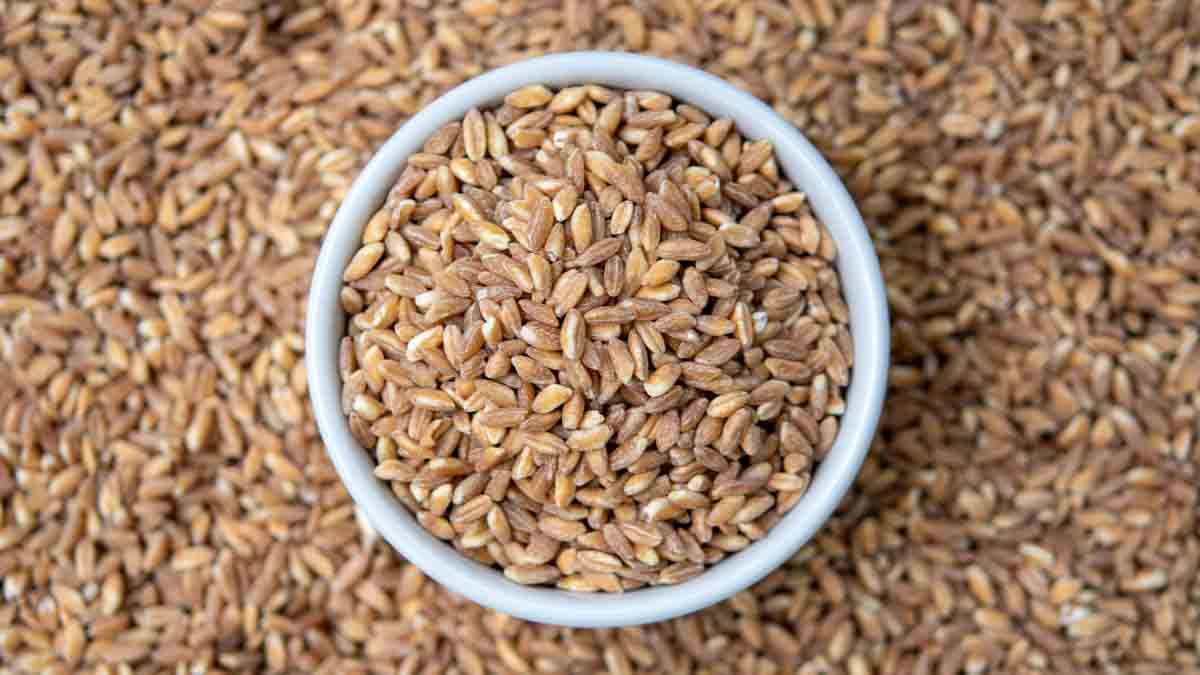Are you wondering if it’s safe for your furry friend to indulge in the trendy ancient grain, farro? We’ve got you covered! In this article, we’ll explore the benefits and risks of feeding farro to dogs. So, keep reading to find out if farro is a good option for your canine companion.
What Is Farro?
Before we dive into the topic of whether dogs can eat farro, let’s understand what it actually is.
Farro is an ancient grain that hasn’t undergone any genetic modifications like other types of wheat or grains. It has gained popularity in recent years as people shift towards whole foods and unprocessed grains. This type of wheat is known for its nutty flavor and chewy texture, making it a favorite among health-conscious individuals.
There are three types of farro: Einkorn (piccolo), Emmer (medio), and Spelt (grande). Additionally, farro can undergo different levels of processing, from whole grains (unaltered) to semi-pearled and pearled farro.
Is Farro Safe for Dogs?
The answer to whether dogs can have farro depends on their individual circumstances. If your dog has celiac disease, grain allergies, or gluten intolerance, it’s best to avoid giving them farro as it contains gluten. Consuming farro may lead to bloating, gas, or even diarrhea for dogs with these health issues.
However, for dogs without these sensitivities, farro can be a nutritious addition to their diet. Vets and dog professionals generally agree that farro is safe for dogs, as long as they don’t have grain allergies or food sensitivities.
It’s important to ensure that your dog is receiving all the necessary nutrients from their diet. High-quality dog foods typically provide all the essential nutrients. If you choose to cook homemade meals for your dog, it’s recommended to consult with a veterinarian to ensure the proper balance of protein, fats, carbs, minerals, and vitamins.
Keep a close eye on your dog’s health and observe if they can tolerate small amounts of whole grains without any issues. Cooked farro can be incorporated into their diet if they show no adverse reactions.
The Benefits of Farro
Farro offers several health benefits that make it a good grain option for your dog.
- Nutritional Value: Farro is a great source of fiber and essential fatty acids. Its fiber content aids in maintaining healthy blood sugar levels and supports your dog’s immune system.
- Antioxidant Properties: Farro contains antioxidants that combat disease-causing free radicals, helping to prevent a range of health conditions.
- Healthy Skin: The nutrients found in farro can also contribute to a healthy skin and coat for your furry friend.
Precautions and Considerations
While farro can be a healthy addition to your dog’s balanced diet, there are a few precautions to keep in mind.
- Digestive Issues: If your dog has a sensitive stomach or gluten intolerance, it’s best to avoid feeding them farro. The potential nutritional benefits do not outweigh the discomfort it may cause.
- Uncooked Grains: Dogs should not consume uncooked or raw grains, including farro. A dog’s digestive system is not designed to handle uncooked grains, which may lead to gastrointestinal distress. Always ensure that grains are cooked before feeding them to your dog.
Frequently Asked Questions
Here are a few common questions about feeding farro to dogs:
1. Can dogs with grain allergies eat farro?
If your dog has grain allergies, it’s best to avoid giving them farro.
2. Is farro suitable for dogs with gluten intolerance?
Dogs with gluten intolerance should not consume farro due to its gluten content.
3. Can dogs eat uncooked farro?
It’s not recommended to feed dogs uncooked grains, including farro.
4. How much farro can I give my dog?
The amount of farro your dog can consume should be determined based on their individual dietary needs. Consulting with a veterinarian is recommended to ensure the proper balance of nutrients in their diet.
Conclusion
Farro can be a nutritious addition to your dog’s diet, provided they don’t have any grain allergies or gluten intolerance. It offers several health benefits, including essential fatty acids, fiber, and antioxidants. However, always monitor your dog’s health and consult with a veterinarian if you have any concerns.
Remember to make informed decisions about your dog’s diet and prioritize their overall well-being. Pawsoha is committed to providing helpful information about caring for your four-legged friends. For more expert advice and quality pet products, visit Pawsoha.
Note: The information provided in this article is not meant to substitute professional veterinary advice. Always consult with a qualified veterinarian regarding your dog’s dietary needs.



